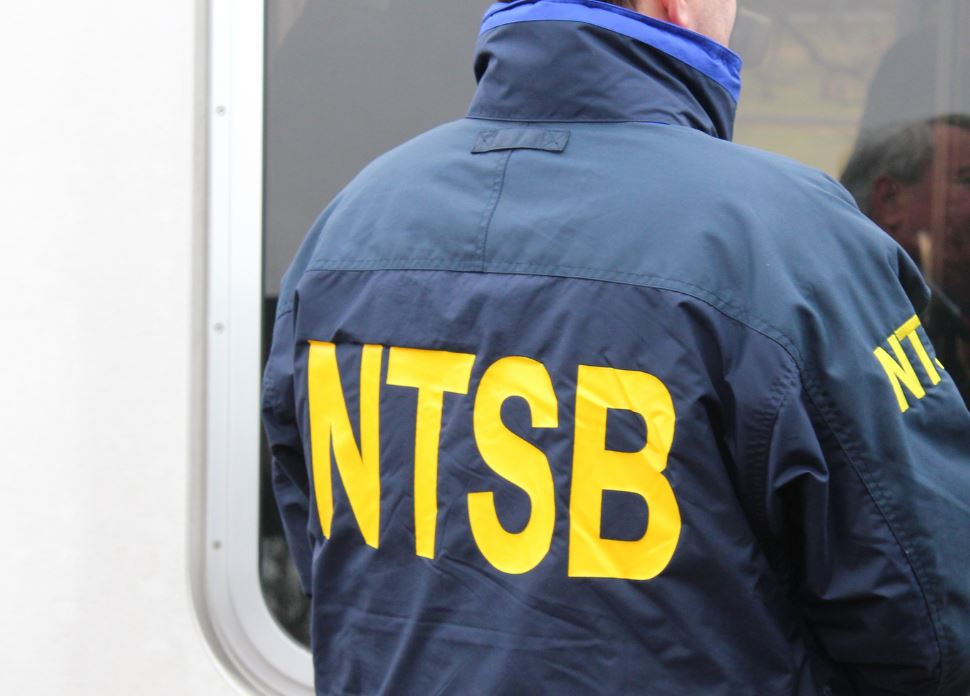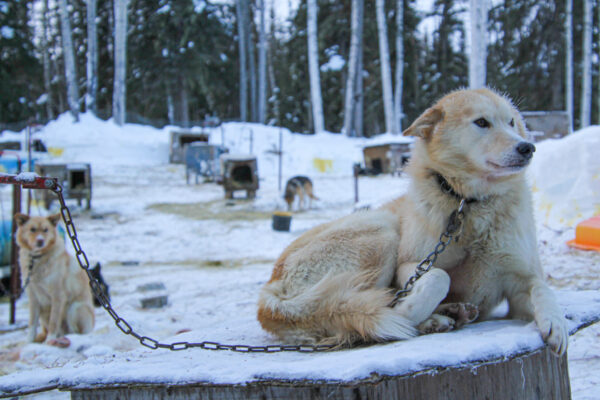
Top mushers who are hoping to win the 1,000-mile Iditarod Trail Sled Dog Race this year say they’ve got their eyes on one team: 2021 winner and five-time champion Dallas Seavey.
The 34-year-old Seavey stormed back to the Iditarod last year, winning by more than three hours in a pandemic-altered competition that started and ended in Willow. Seavey, who already made history as the Iditarod’s youngest champion at age 25, is now eying another record: becoming the first ever six-time Iditarod champion.
But his competitors aren’t going to make it easy for him this year. Especially his dad, three-time Iditarod champion Mitch Seavey.
“If he wins, he’s going to have to beat me,” said the elder Seavey in between chores at his Seward dog yard. “I’m not going to give it to him.”
Dallas Seavey has won five of the last seven Iditarods he’s started. He came in fourth in 2013 and second, to his dad, in 2017.
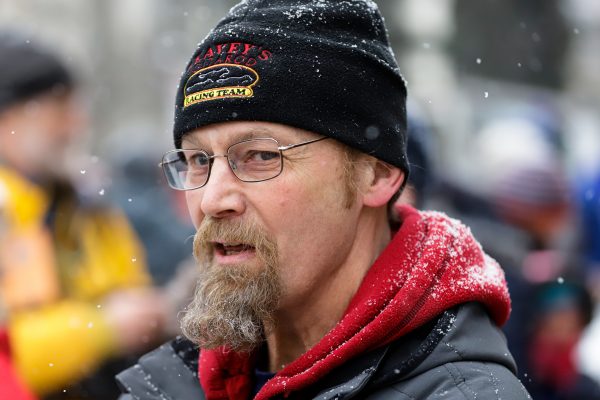
The two Seaveys are among five past champions competing in this year’s Iditarod. Out of last year’s top 10 teams, nine are back in the race.
Mitch Seavey, 62, took a break from the race last year to let his trail-battered body recover. He said he’s been going to a chiropractor, stretching and doing Rolfing — a form of deep tissue massage.
“I feel physically much better off, so I’m probably a better musher now than I had been in many years,” he said.
How his team stacks up is yet to be seen. He hasn’t run any races yet this year, but says he’s been tracking the team’s speed with a GPS on long training runs and feels confident in his dogs.
Last year, he said, he gifted a few of his best dogs to his son. And while Dallas Seavey will run with some of them in this year’s race, he gave a few back.
“I do think he missed on his selection, because some of the ones I got back are some of the ones, I thought, were a couple of the best ones,” said Mitch Seavey.
As for Dallas Seavey’s take, we don’t know — cell service at his kennel in Talkeetna cut out before we could ask him.
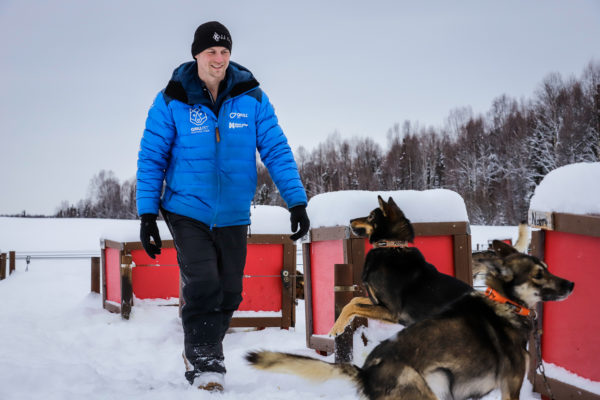
Farther north, Brent Sass hasn’t left any room for doubt about the shape his dogs are in. He’s won all three of the mid-distance races he’s started this year, including the Copper Basin 300, where he outran rivals like former Iditarod champ Joar Leifseth Ulsom.
Sass said his team has logged more than 4,000 miles of training and racing, mostly at his remote homestead in Eureka, north of Fairbanks.
“My team is probably more dynamic than most of those teams,” he said earlier in February at a temporary camp in Fairbanks, where he was preparing for the Yukon Quest. “I just think in my training, I do a little bit extra on that front, just because of where I live — the place that I live and the lifestyle I have there.”
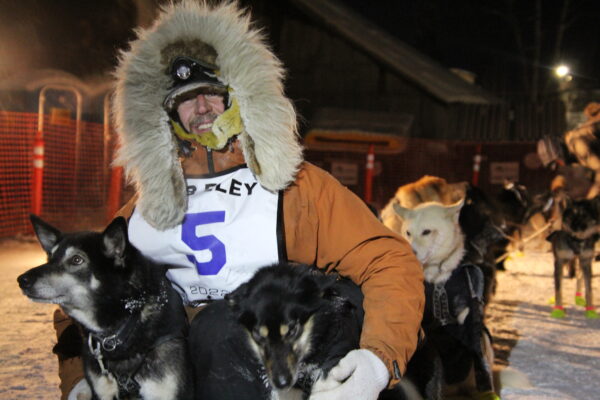
Sass, 42, finished third in last year’s Iditarod and says if he can keep his cool for the first half of the race, he thinks he’s got a good shot at winning this year.
In 2016, he was set to take third place with less than 100 miles to go to the finish line. But at one of the final checkpoints, his dogs refused to leave for several hours, and he ultimately finished in 20th. He said he’s learned from that.
“My self-discipline has gotten a lot better over the last few years,” he said. “I’m no longer the young kid on the trail anymore, which catches up with me every now and then.”
Nenana musher Aaron Burmeister is also looking to use his experience to his advantage.
The 46-year-old was nipping at the heels of Dallas Seavey last year and finished second. This will be his 21st Iditarod — and his last, at least for a few years, so he can spend more time with his family. He said his years around the race have taught him details like tailoring dog food to different weather conditions. But he’s keeping that information under wraps.
“That’s something that takes years of experience to learn, and I don’t want to share that with everybody right now,” he said with a laugh in a phone interview last week.
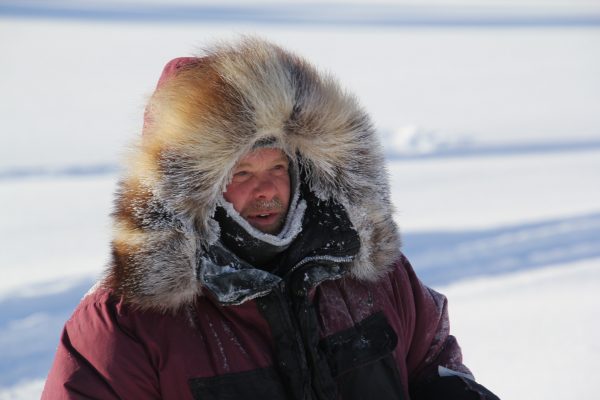
The musher’s results are modest so far this year. He finished third in the Knik 200 mile race, and 7th at the Kuskokwim 300 under fast conditions that he said didn’t favor his dogs.
“Kusko is not our main race of the year, Iditarod is,” he said. “Kusko is just a training run to help prepare them and show them a race situation.”
Pete Kaiser won this year’s Kusko 300, as well as the Bogus Creek 150, proving he’ll again be a top contender for this year’s Iditarod. Kaiser won the Iditarod in 2019. Last year, he withdrew from the race because of sick dogs.
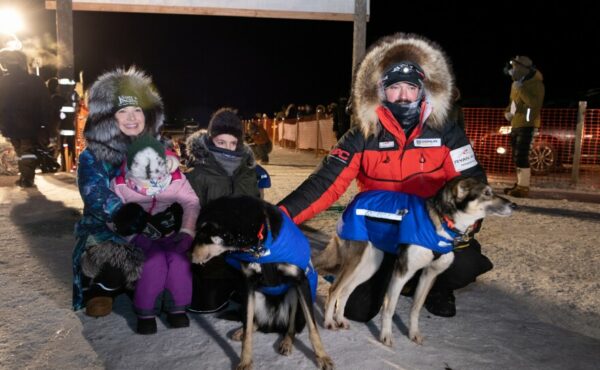
Nic Petit, who’s been a top mid-distance musher for years and has been close to winning the Iditarod multiple times, is competing, too. He moved from Girdwood to Big Lake a few years ago. He’s had a tumultuous season so far, scratching from the Copper Basin before the start after his truck broke down.
He said the warmer-than-usual temperatures forecast for the trail might be an advantage for his dogs.
“I don’t have the wooliest dogs, so my dogs don’t mind warm weather,” he said.
Also on the lengthy list of top contenders: last year’s fifth place team, led by Danish-born Mille Porsild.
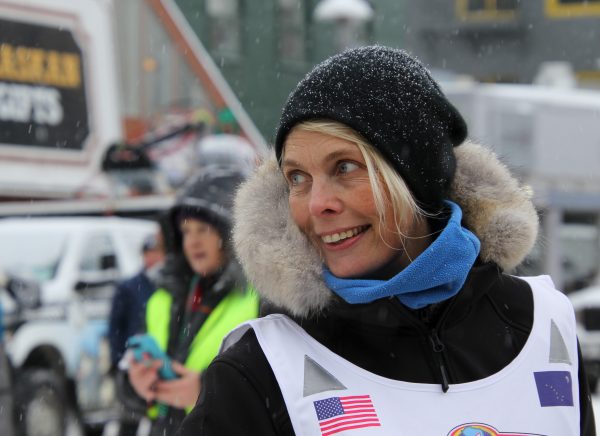
Another Scandinavian, 2018 Iditarod winner Joar Leifseth Ulsom is also on the start list. He’s joined by fellow Norwegian Hanna Lyrek.
Lyrek grew up around dogs with her dad, an Iditarod finisher. She was born in Alaska and watched her American dad race Jeff King’s dogs, but moved to Norway as a child. She won the 600-kilometer version of Norway’s biggest dog sled race in 2019 as a 19-year-old, the youngest musher to do that. She’s modest about it though.
“It’s one the biggest races we have in Norway, and is the main goal for — I would say most Norwegians that are racing,” she said. “So I guess it’s a big deal.”
Her focus in recent weeks, however, hasn’t been as much on how to win the Iditarod, but about just how to get her 16 dogs from Norway to Anchorage. She said it got more complicated when one of her handlers tested positive for COVID-19 the day she was set to leave.
After a few days of worry, Lyrek said on Monday that the dogs had made it. She looked ahead to the start of the race this weekend.
“It still doesn’t really feel real, like that I’m here and that I’m actually going to do the race,” she said. “It’s crazy.”
The Iditarod ceremonial start kicks of Saturday, March 5, in Anchorage, and the official start is the following day in Willow. Follow Alaska Public Media’s coverage of the race at alaskapublic.org/iditarod.
[Sign up for Alaska Public Media’s daily newsletter to get our top stories delivered to your inbox.]
Lex Treinen is covering the state Legislature for Alaska Public Media. Reach him at ltreinen@gmail.com.


